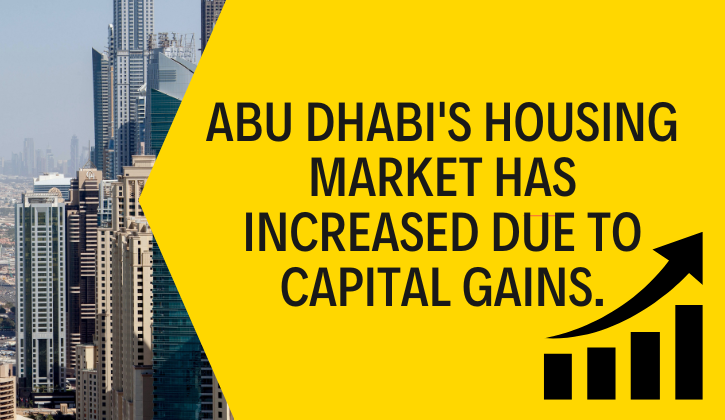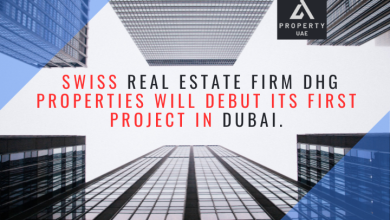Abu Dhabi’s Housing Market Has Increased Due To Capital Gains.

As Demand Rises, Property Values Climb.
The residential market in Abu Dhabi has experienced strong growth in Q2 2023, buoyed by increased demand.
In Abu Dhabi, villa prices increased by 5.6 percent in the second quarter, while flat prices increased by 4.2 percent. This was attributed by ValuStrat to the growth of Abu Dhabi’s residential sector.
Saadiyat Island had the largest gain, according to the survey, with villa prices rising by 9.2 percent and flat prices rising by 5.7 percent from April to June.
Expansion in other areas
Similar to this, growth has been seen in other parts of Abu Dhabi. These include Al Reem, Al Muneera Island, and Al Bandar, where the yearly growth rate for flat prices was 5.1%.
According to the survey, villa prices rose 5.4%, 4.3%, and 5.6% in Mohamed Bin Zayed City, Al Reef, and Al Raha, respectively.
In addition, rental values in Abu Dhabi increased by 2.2 percent quarterly and 8.5 percent annually.
Important sectoral overview
Outside of the residential market, the report included considerable research. It was highlighted that although asking rents for offices in the city’s major business areas were down 12.3 percent on a quarterly basis, they were up 2 percent on an annual basis. The expected office space in Abu Dhabi during the second quarter was 3.94 million square metres.
Key accomplishments were seen in the retail business in the meantime. For instance, Aldar announced that during the first half of 2023, tenant sales and foot traffic in Yas Mall increased by 30 and 36 percent, respectively, year over year. Yas Mall had an occupancy rate of 99%.
A six-story shopping facility called The Capital Mall – China facility just opened to the public elsewhere in Abu Dhabi. It was a huge success right away, with an astonishing 95% occupancy rate.
The Macroeconomics
The macroeconomic issues that affected Abu Dhabi’s real estate market are outlined in ValuStrat’s Abu Dhabi Real Estate report for Q2 2023. One of the most important of these factors is the UAE’s real GDP increasing by 2.8 percent in 2023.
This in turn is fueled by the non-oil sector, which is anticipated to increase strongly by 4.8 percent as a result of strong domestic demand, especially in the tourism, real estate, and construction industries. The World Bank predicts that expansion in the manufacturing and transportation sectors will have a beneficial impact.
The industrial sector in Abu Dhabi, meanwhile, increased by 9.7% year over year to AED 90.8 billion, making up 8% of the country’s overall GDP and 16% of its non-oil economy.
Additionally, despite a global drop in investment, the UAE received AED84 billion in FDI in 2022, the biggest amount ever. This contributed to the country’s thriving economy, which significantly boosted the real estate market.
The UAE ranks fourth globally in terms of investments made in new projects, according to the World Investment Report. With a total of 977 developments, it saw a notable increase of 80%.




